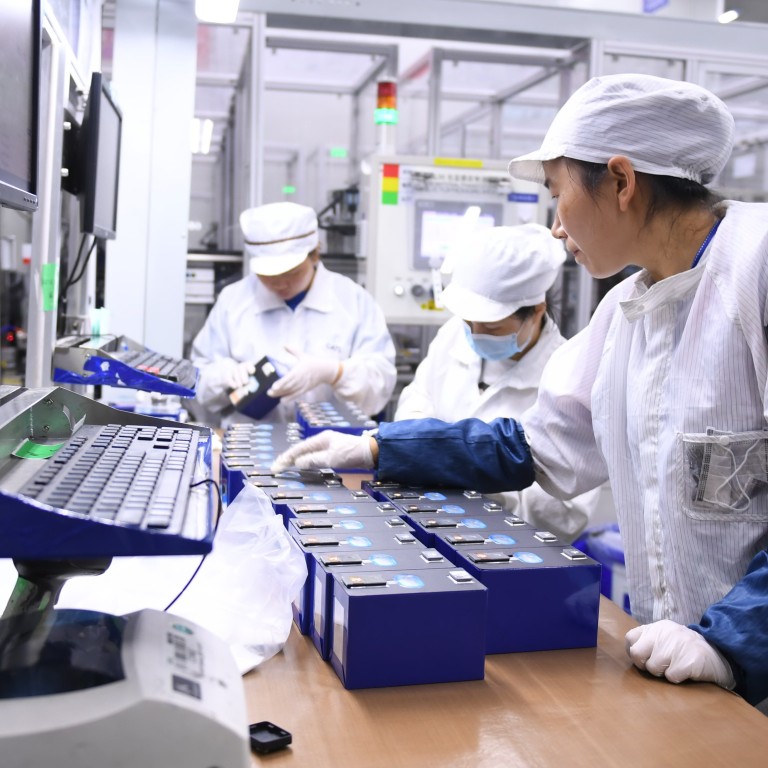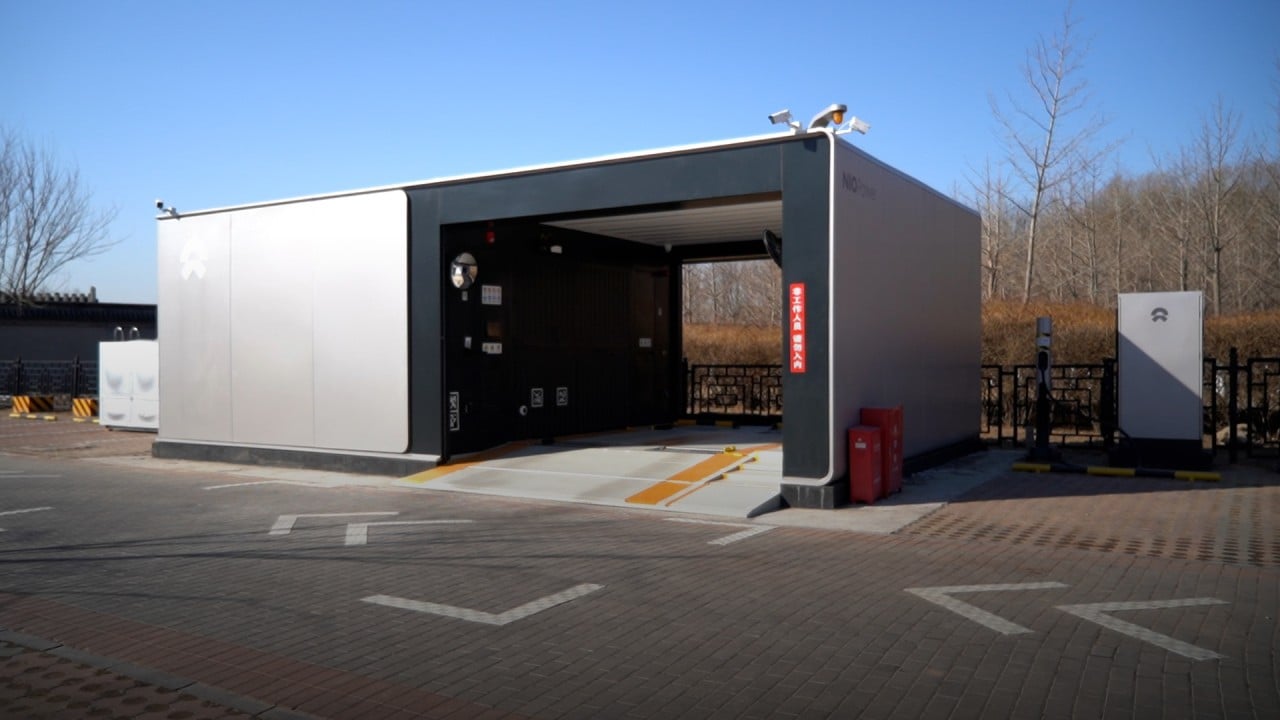
China’s CATL to provide know-how for Ford’s new US$3.5 billion electric-car battery plant in US
- The US carmaker will be licensing the battery technology from Contemporary Amperex Technology Co
- The facility is set to open in 2026 and will produce enough batteries to power 400,000 EVs a year
The arrangement, aimed at securing tax benefits for the plant, has drawn criticism at a time of heightened geopolitical tension between the US and China, notably uproar over a Chinese balloon that flew over America. Virginia governor Glenn Youngkin pulled his state from consideration as a location for the factory, calling it a “Trojan horse” for the Chinese Communist Party.
“It’s very regrettable that governor Youngkin had some misinformation,” Drake said in an interview on Bloomberg Television. “We hope through today’s media announcement that it was very clear that Ford has control of the plant.”
CATL staff will help with the installation of factory equipment to build the batteries, some of which will come from China, Drake said. And some of that personnel from CATL will remain at the Michigan factory permanently because “we need their help,” Drake said.
The United Auto Workers said in a statement that it expects the plant to create “good-paying union jobs.”
Ford’s shares rose 2.7 per cent at 3:54pm in New York. The stock was up 9.5 per cent this year through Friday’s close.
At a ceremony on Monday in Michigan to announce the factory, executive chairman Bill Ford, great-grandson of founder Henry Ford, characterised his company’s relationship with the Chinese battery maker as a way to foster American autonomy in building EV batteries, which now come primarily from Asia.
“Manufacturing these batteries in America will bring us closer to battery independence,” Ford said. CATL will “help us get up to speed so we can build these batteries ourselves.”
Drake wouldn’t say if Ford invited President Joe Biden to the ceremony. The Information reported Biden declined an invitation to join Michigan governor Gretchen Whitmer, Bill Ford and Ford CEO Jim Farley at the announcement.
“We’ve certainly appreciated the White House and the administration’s support on the project so far,” Drake said.
Ford will begin offering LFP batteries in its Mustang Mach-E model later this year and in its F-150 Lightning plug-in pickup truck next year. Initially, those batteries will be imported from China. Tesla and Honda Motor also have contracts with CATL to import LFP batteries for their EV models.
The Michigan factory, which will be located about 100 miles west of Detroit, will have the annual capacity to produce 35 gigawatt hours of LFP batteries, enough to provide power sources for 400,000 Ford models a year, Drake said. That will represent about a fifth of the EV output of 2 million vehicles Ford is targeting annually by late 2026. Ford is spending US$50 billion to develop and build EVs through 2026.
By outfitting so much of its electric line-up with more affordable batteries, that will help the carmaker achieve the sales volume it needs to reach its goal of an 8 per cent margin on earnings before interest and taxes on EVs by 2026, Drake said.
Ford currently loses money on its EV line-up, which helped contribute to disappointing earnings last year that may lead to expanded job cuts.
Ford believes the batteries produced at the factory will qualify for full production tax credits under the Inflation Reduction Act passed by Congress last year that seeks to encourage domestic production of electric cars and batteries.
However, consumers purchasing Ford EVs with the batteries produced at the Michigan plant will not be eligible for the full US$7,500 tax credit, according to Marin Gjaja, head of sales and marketing for Ford’s electric car business. Rather, they will qualify for a US$3,750 credit because the vehicle is built in the US, but the battery materials are not locally sourced. Commercial customers and lessors will qualify for the full US$7,500 tax credit, Gjaja said.
“I think over time we’ll see if we’ll qualify for the full US$7,500 based on the mineral sourcing and that’s something that the team continues to work on,” Gjaja told reporters.


